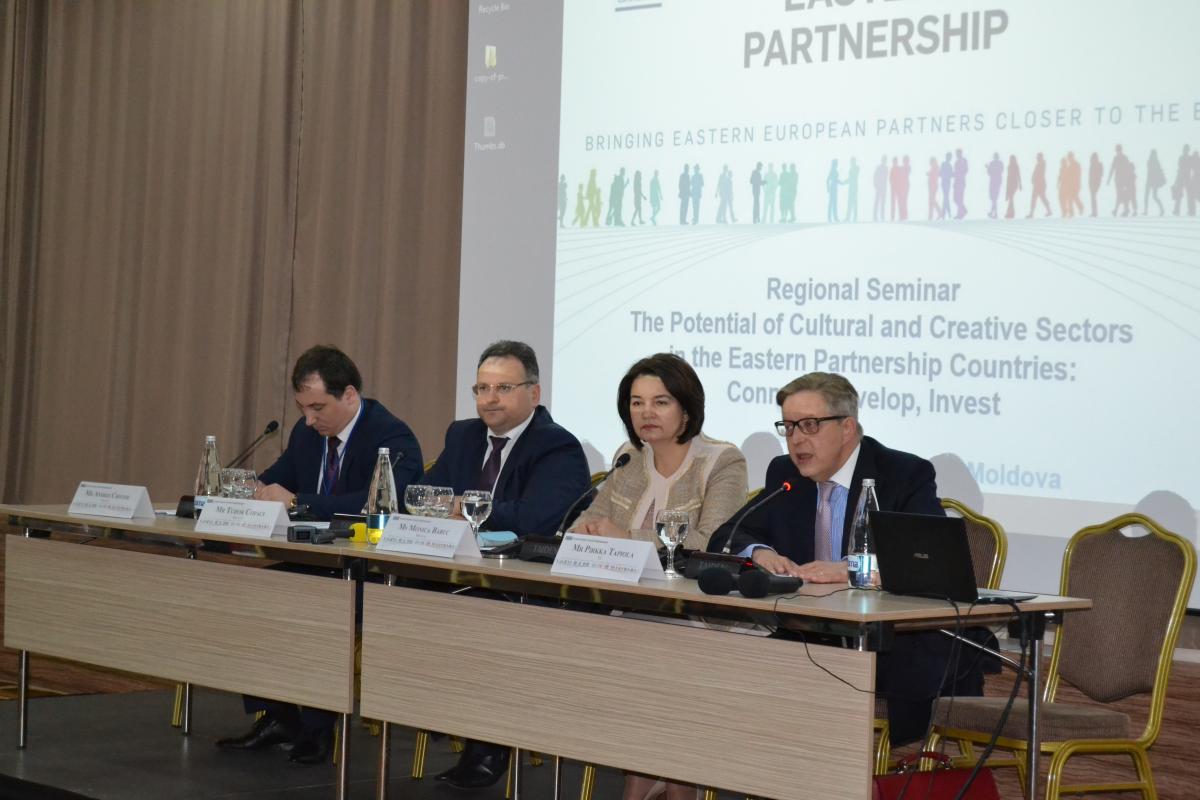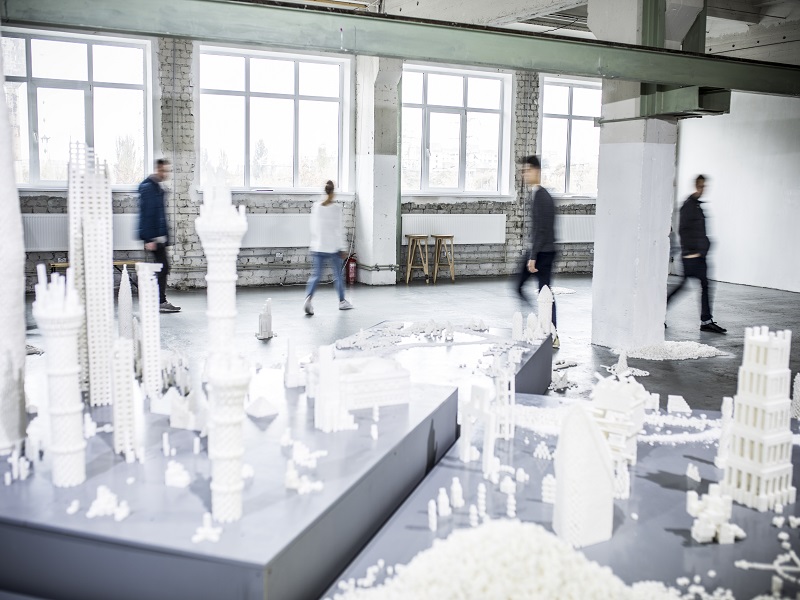
Connect, Develop, Invest: EaP seminar on potential of cultural and creative sectors
The need for understanding at all levels of society the true meaning of culture, and the perspectives it can offer.
Mr. Terry Sandell, the former Leading Expert of the EU-Eastern Partnership Culture&Creativity Programme, admitted that many people in the EaP area have a very narrow understanding of what culture means and offers. “For many, culture is what the Ministry of Culture does, or what the Ministry of Culture does not do, which places their way of perception far from the modern approach to the role that culture can play in a country’s sustainable development.
The need for a legal framework for cultural and creative industries in the region.
The representatives from all the Eastern Partnership countries pointed the similarities of problems they have to face on this aspect. The Moldovan Deputy Culture Minister mentioned that in their country cultural activities are not even included in the country’s Classifier of Economic Activities. Participants of the seminar agreed that cultural industries are an integral part of the economy, therefore, as Terry Sandell noted: “The enhancement of tax legislation, labor legislation, as well as of the legislation related to business formation is sometimes more important for strengthening cultural and creative sectors than cultural legislation per se”.
The need for the development of creative industries in collaboration with other sectors of economy.
The speakers from different EaP countries focused in their speeches on authorities’ low understanding of culture’s impact on other sectors: business, education, environment, health care etc. Mrs. Teresa Albuquerque, who has performed work both for the independent sector and for public authority of Portugal, illustrated through examples how cooperation between the cultural industries and other sectors of society can solve social problems and contribute to the development and success of all participants of the process ."We need to find answers to some questions: how can the cultural and creative sector contribute to modernizing public administration, enhancing the quality of services rendered to population, improving the decision-making process; what impact may this have on the educational process, public health services etc” - Mrs. Albuquerque believes.
The need to create a network of cultural organizations and creative hubs, which are an essential basis for the existence of creative entrepreneurs.
Ihor Savchak, Coordinator of the Sub - Group “Culture” of Working Group 4 “Contacts between People” of the Eastern Partnership, provided a very useful presentation based on the experience in Ukraine, which can be applied to other EaP countries. Some his conclusions proved to be very relevant to the audience. Mr. Savchak believes, that communication is by far the biggest issue: public authorities do not communicate with one another at Ministries level; cultural institutions hardly communicate with one an other; there is no communication at the Creative Industries level, no communication between different regions of the country. There is a huge communication barrier between the public authorities and civil society.
The need for undertaking of reliable and objective researches in the field of culture based on local resources.
In the region there is a problem with the collection of reliable data about cultural and creative sectors, and without them it's impossible to make an adequate cultural policy. Terry Sandell considers that there is a great deal of quality expertise in EaP countries, just as there are many good specialists in the EaP region, but local authorities do not always use and value them.
Seminar ‘The Potential of Culture and Creative Sectors in the Eastern Partnership Countries: Connect, Develop, Invest’ (June 25-26, Chisinau, Moldova)




